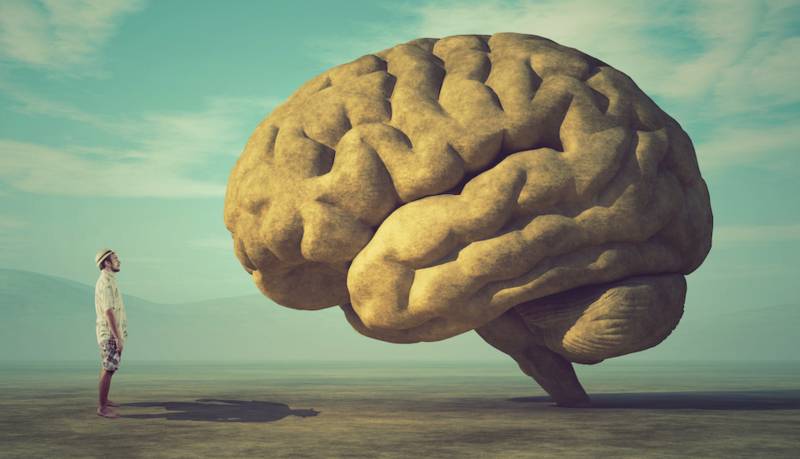
“Man’s sensitivity to the little things, and insensitivity to the greatest are the signs of a strange disorder.” - Blaise Pascal
Sensitivity is a perception issue, for human beings in particular and all living beings in general. Physically, we are all prone to responding to stimuli around us. This is the reason why our bodies react to the changing weather, smells, taste and touch, for example. If this was absent, then life would have been highly different as well as difficult, and of course quite uninteresting. If sensitivity is removed from this world, it would turn out into an uninhabitable planet, as there would be no adaptability to the surroundings nor would there be any concrete experience as to pleasure and pain. All living beings come equipped with a wide range of sensory abilities—from very sensitive to very dull. A research study shows that people tend to fall into three groups of sensitivity: low (30%), medium (40%) and high (30%).
Research scientists have written volumes regarding physiological and psychological aspects of sensitivity which cannot all be squeezed in a few lines, but some broad characteristics, particularly with respect to human beings can be mentioned here. For instance, like most other common human traits, sensitivity is partially genetic, wherein fifty percent of differences can be explained by genetic factors, while environmental factors can account for the remaining. According to research, adverse experiences in early childhood can contribute to the development of heightened sensitivity at maturity, sometimes depending upon the acquired sensitivity gene, although none has been actually singled out as one. It just implies that children who are genetically more sensitive are obviously more strongly affected by childhood experiences, while adults possessing these traits benefit more from psychological intervention.
Research has also shown that highly sensitive people are more negatively affected by adversity, but at the same time they are poised to benefit a lot from positive experiences clearly meaning that sensitive ones are usually more powerfully influenced by what they experience.
The most important feature is the cognitive processing of information as perceived by human beings throughout their lives. Being sensitive is one thing, but to be consciously aware about its nature is another. Many a times, we fail to understand our response to certain situations. The same set of events can attract an amazing variety of reactions depending upon the scale of sensitivity. There are a host of reasons as to variance in how some people can be more sensitive to either their own feelings or that of others which could be in relation to their level of compassion within themselves. This can be observed especially where some persons may not be moved by physical or mental torture inflicted on them, but may react forcefully when the same is meted out to others. This position can be contrasted otherwise too, where people may appear indifferent to the pain being suffered by another.
The idea of this discussion is to understand how our minds become so heavily influenced by brainwashing that sensitivity takes a back seat when incidents occur such as the madness of loot, killing and rape in 1947 when the subcontinent was partitioned into India and Pakistan, war crimes committed by participants during the World Wars and other regional conflicts, 9/11 in 2001, 7/7 in 2005, violence against Muslims in India, violence against Hindus and Christians in Pakistan, and all those cases where humans behave brutally with humans.
These happenings clearly indicate that sensitivity is mostly restricted to a personal level. People are generally touchier about their own issues and hardly care about what is going on in other people’s lives. They are more full of themselves, their desires, their understandings, their own likes and dislikes etc. that they become totally oblivious to others’ corresponding attributes. What hurts them, probably does not hurt the other therefore they feel justified in reacting violently to anything that racks their sentiments.
We need to realize that the intensity with which we protect our conformist ideologies for example, can be present with the same magnitude in a non-conformist; atheists can have an equal amount of faith in their outlook as believers of monotheist religions have in theirs, capitalists can be orthodox in views as communists or socialists and when these opposing beliefs come face to face, especially in a confrontation, the physical and emotional damage can easily be contemplated. Here is where sensitivity comes in to elaborate upon the golden rule “Do unto others as you would have them do unto you,” or “Do not give others something you yourself do not like.”
Regardless of where these quotes have been taken from, they go a long way in teaching the lessons of sensitivity and compassion for all living beings, not just humans. However, when the programming of the mind is based on prejudices of thoughts and opinions, the impact of these trainings will also be severe. Thus, where people fall in the category of highly sensitive, they would be prone to violence if their minds are negatively wired. With an “I don’t care” attitude where it involves others, they have no qualms about inflicting mental and physical torture so long as they are successful in satisfying their own ego.
On the other hand, the same highly sensitive individuals, when raised in a conducive environment are more empathetic to others as they are to themselves and can make excellent counsellors, artists, advisers, coaches and scientists. They have better social skills, are more conscientious and are considerate towards other members of society. If these qualities could be nurtured, human society would evolve better, be more peaceful and less chaotic.

